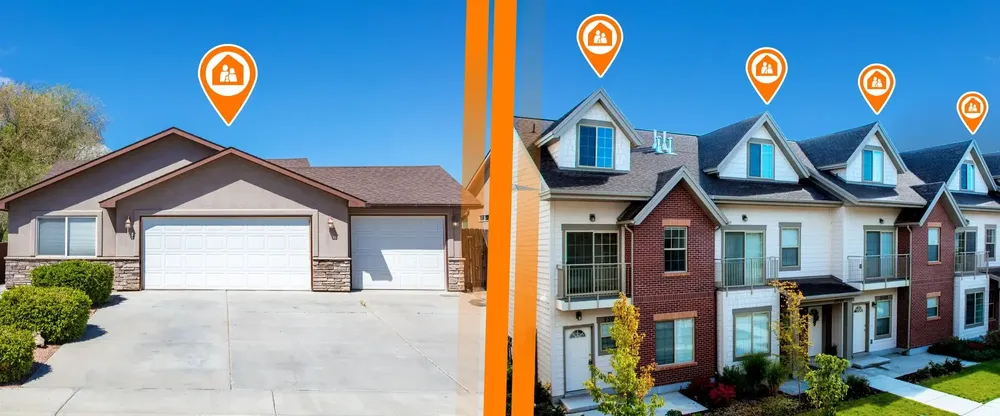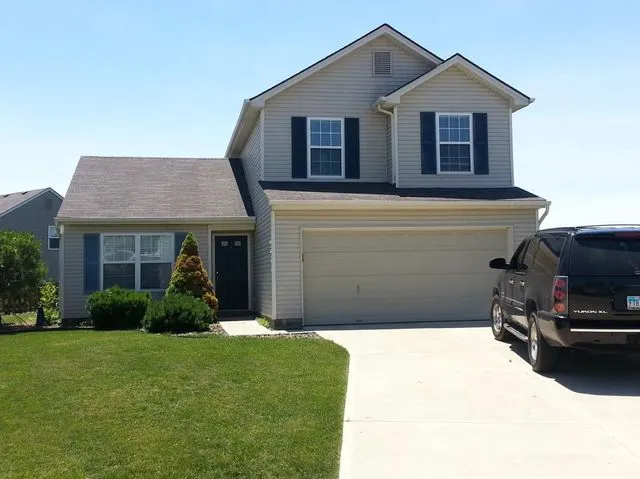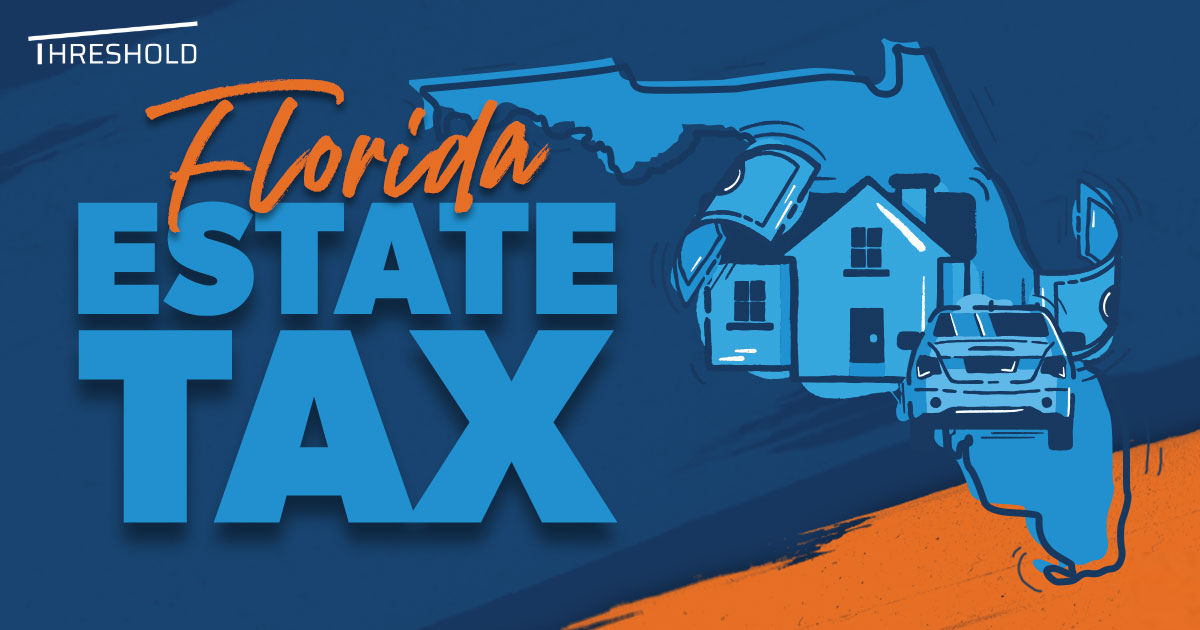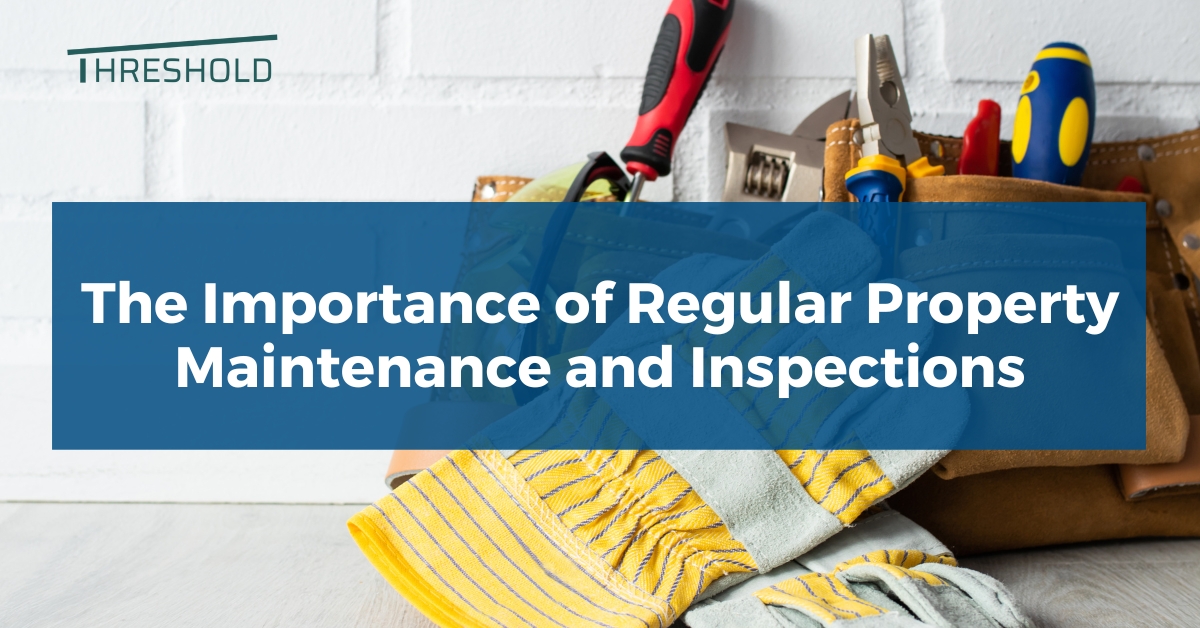Are you stuck between investing in single-family vs. multi-family property investment in South Florida? The fact that you already have these two options in mind means that you are a good investor and definitely on the right track.
We’ve done extensive research to help you make the right investment decision as a property investor. It’s going to be a piece of cake!
Letbreakown it down, shall we?

What’s the Difference Between Single-Family and Multi-family houses?
When investing in real estate as a property owner, understanding the contrast between these two is essential, but you can get it wrong sometimes. We have prepared a comprehensive explanation and examples for each.
What is a Single-family Property?
A single-family house is a standalone property that can accommodate just one family. It’s literally in the name “single-family house.” Examples of such properties are semi-detached Duplexes, townhouses, and row houses.
What is a Multi-family Property?
On the other hand, a multifamily unit is the opposite of single-family property, as we’d expect. They accommodate more than one family within the same premises. The premises have units that each family occupies.
Examples of Multifamily Properties:
- Apartment Buildings
- Duplexes
- Triplexes
- Fourplexes (AKA Quadplexes)
- Highrise apartments
- Condominiums
Now that you can tell the two apart let’s analyze the upsides and downsides of investing in each.
5 Advantages of Investing in a Single-family Property
1. Costs less to start
Since these properties are standalone houses, construction cost is cheaper compared to a multi-family property.
2. Tenant turnover
On average, tenants in single-family properties rent out for 3 years. This is a pretty good duration to have a steady cash flow every month. Plus, it is every landlord’s dream to have long-term tenants who will rent to stay.
3. High demand
These properties get rented out faster due to the high demand for them. Most individuals prefer privacy. Being alone with just your family on the premises is a level of privacy every ‘family guy’ desires. Do you agree?
Disturbance from neighbors is so minimal here compared to multi-family residences.

4. High Resale opportunities
Since the houses are standalone, selling to an individual is easy and affordable. People like the idea of owning a standalone home.
Use that advantage when you want to bail out of the investment. Renovate and sell. Since they cost less compared to multi-family properties, they sell fast.
5. Low maintenance costs
Houses eventually wear off and require repair. If you own a single standalone house, then it would mean less damages to repair. That means fewer expenses and low maintenance costs.
Find a trusted property manager in South Florida to maintain and repair your house to achieve maximum ROI.
Disadvantages of Investing in a Single-family Property
1. Low Income
Since you only have a single unit on the entire premises, you’ll receive monthly rental income from that single tenant. Which is good, but that’s all you can get every month.
2. You can’t scale up the number of units
A standalone property’s foundation and structure can allow an extension if you have adequate space. But that’s only if you have more ground to cover. Will you have that space to extend?
I don’t know. Given the inflated price of land, property owners prefer scaling the number of units vertically. This is something that a townhouse cannot support.
Advantages of Multi-family House Investment
1. Higher cash flow/ income
Unlike standalone unit landlords, a multi-family house landlord collects rent from more than one unit. The income will depend on the rental value per unit × number of units.
For instance, if the fourplexes owner charges $1,000 per unit, he will receive four times the amount every month. $1000 × 4 units = $4,000 income monthly.
2. Scalable units
The structure and foundation of such properties are built to support the addition of units. If you are thinking of boosting your cash flow by increasing the number of units, go for it.
This should be done when no occupants are in the building due to safety guidelines.

Disadvantages Multi-family House Investment
1. It’s not easy to exit
When you want to bail out of this investment, selling is usually the go-to solution. However, a multi-family property’s value is relatively higher than single-family houses.
Therefore, you will have to wait a little longer before finding the right person to purchase the property.
2. Short-term tenants
Tenants of multi-family houses tend to move around a lot. The average rent duration for these tenants is 1 year. Most of these tenants have not yet decided on a long-term place to stay.
They are mostly Millennials and younger generations. However, you can ensure they stay much longer depending on your relationship with them.
Final Thought: Which Property is Best to Invest in—South Florida?
Now that we have examined the pros and cons of single and multi-family property, have you picked your preference? As an investor, it is good to have this knowledge. Have an investment strategy drafted with a particular property type in mind.
If you want to buy either of the two real estate assets in South Florida, ensure you have local professionals (Realtors) to help you choose an ideal property wisely. A property manager on the ground would help you invest in property with high Returns On Investments.
Check and compare data of different properties that are available for sale. Free consultation would help you get professional advice to start your property investment journey.
FAQs – Single-family Vs. Multi-family Property Investment
What rental properties are most affordable?
Studio apartments cost less compared to apartments with bedrooms. A major factor that affects a property’s cost is location. Different places also have different tax rates.
Can I buy a house in Florida and rent it out?
Definitely, real estate in Florida is very lucrative. Investors, there are witnessing an appreciation in rental income. Renting out there is a good investment.
Do you pay income tax in Florida?
Individuals don’t pay state income tax in Florida. However, corporations are required to pay 5.5 percent state income tax. This state is suitable for investing like you.
Is Florida a good place to invest?
Yes. There is no income tax, plus the population and the markets keep booming.
The state is considered an international business hub. A brilliant & lucrative location for investors right here!



